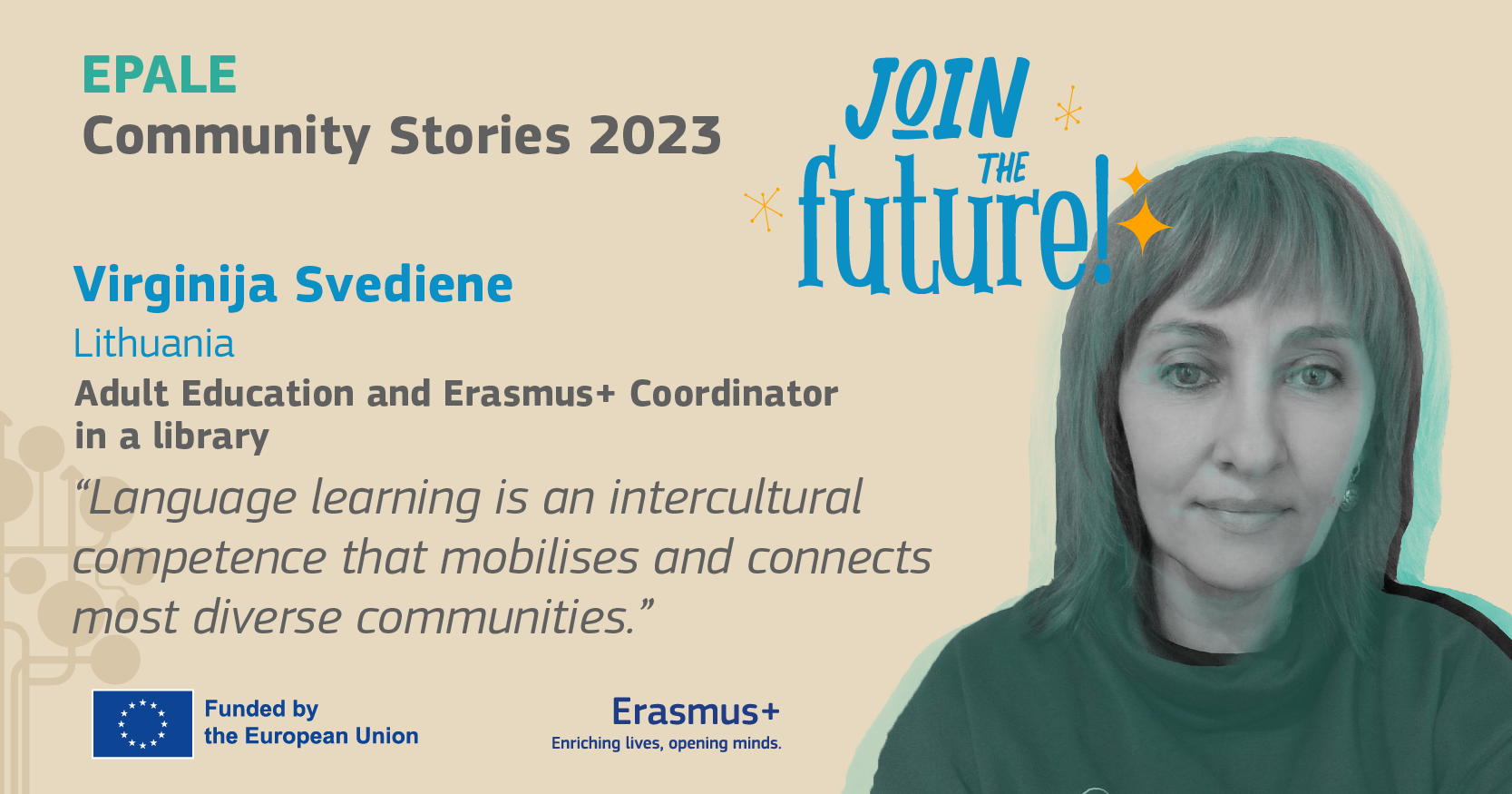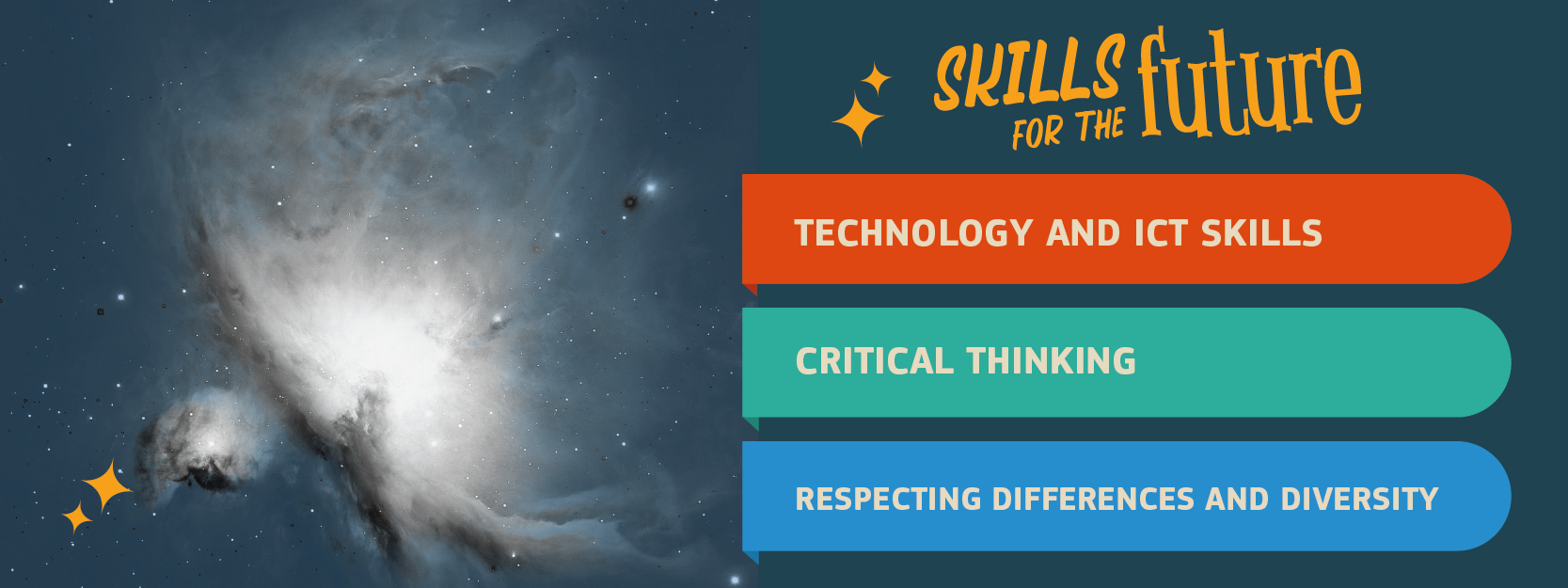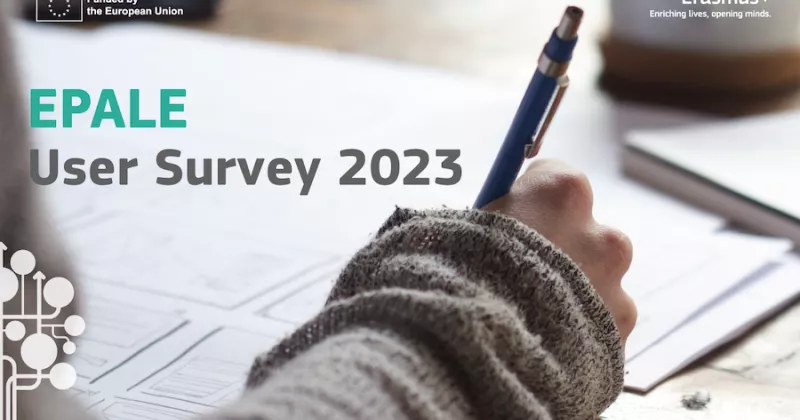Virginija Svediene: Building intercultural communities and becoming global collaborators

Short bio
I work as an Adult Education Coordinator for Panevezys County Public Library. In addition to this, I also work as a coordinator of the Erasmus+ program accreditation project in the field of Adult Education. This entails organising job shadowing visits in European adult education institutions for the employees of my library and municipal libraries of our region. Among my other activities, I coordinate the English conversation club for adults Let's Talk, both in person in the library and also online.
My story
Language policy in Europe is becoming extremely important. Continuous learning and improvement in today's constantly changing world is one of the main priority aspirations of European countries who want to form competent societies. A special role is played by language education for adults, which encourages people to consciously realise the importance and meaning of a foreign language and helps to expand and improve their professional competences.
Since 2018, Panevezys County Public Library has operated the English conversation club Let's Talk. It has brought together active citizens who are connected not only by the club's traditions, but also by the fact that this activity has united them as a strong group of like-minded people and community of friends. Club meetings are held three times a week and each member can choose the meeting format that suits them - English conversation sessions in the library or virtual meetings.
Let's Talk members note that they gain invaluable experience at club meetings - when speaking English, they become more confident, express their thoughts more easily, improve their speaking skills and, of course, expand their vocabulary.
The pandemic and changing geopolitical situation are modifying teaching and learning formats. Remote communication platforms provide opportunities to connect the most distant communities of adult learners, develop their chosen foreign language and improve their ICT skills. This is also an important direction of education for contributing to sustainability.
Educators are the ones who constantly study themselves to have competencies to teach others. In the last few years, adult educators have adapted to the new technological reality by learning to work with the future tools of education.
The online language learning model expands the boundaries of audiences. By participating in online English language sessions, adult learners not only learn languages and master technologies, but they also build intercultural communities, thus becoming global collaborators. I believe that the teaching format I practice lends itself to the inclusion of learners of different experiences, backgrounds and perspectives. Language learning is an intercultural competence that mobilises and connects most diverse communities. The groups I work with include Lithuanians, Americans, Spaniards, and Ukrainians.
Which skills I think will be most important for the future?






Прекрасно.
Прекрасно.